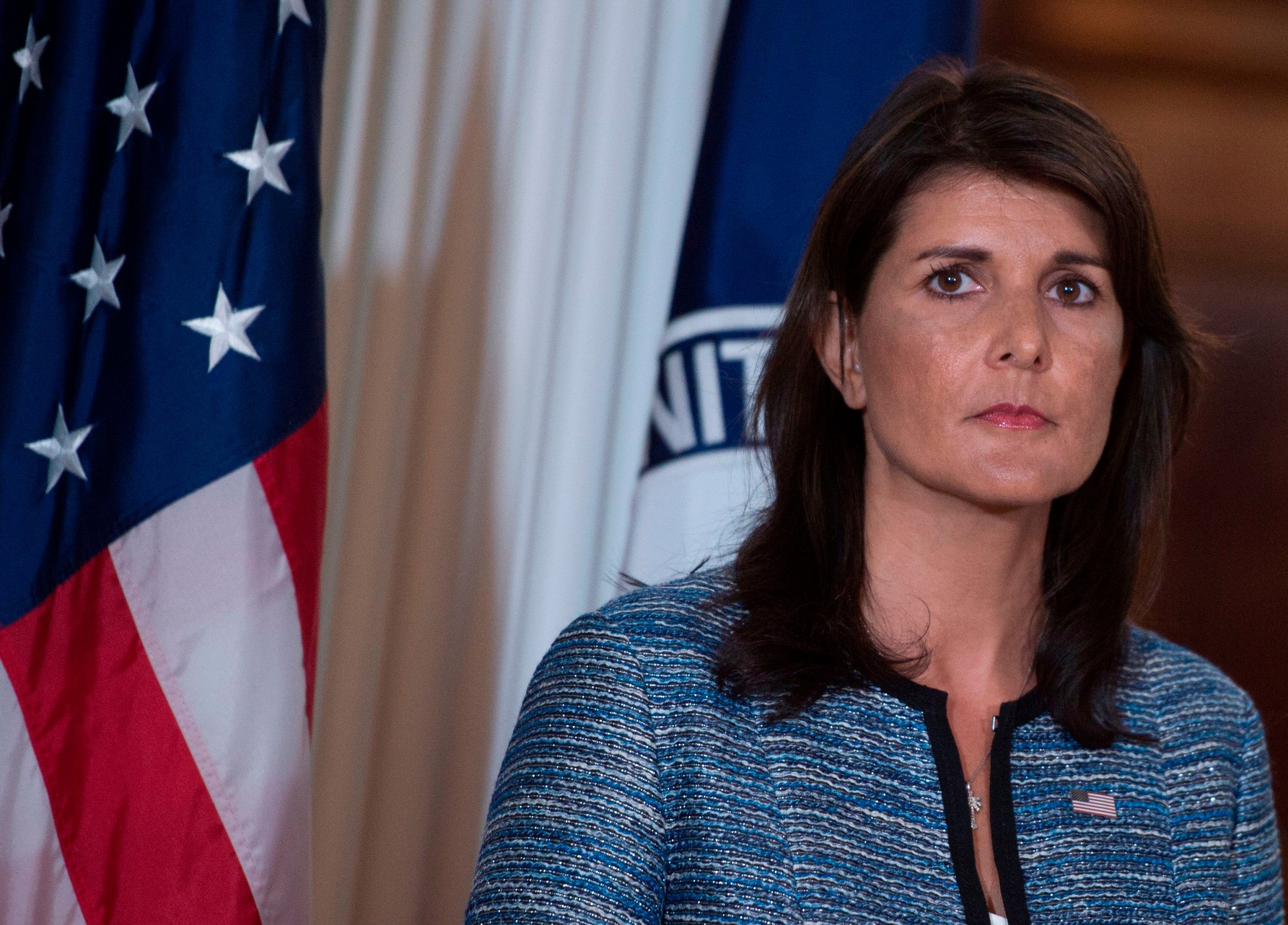
On Tuesday night, in a truly unprecedented turn of events, “U.N. Human Rights Council” was trending on Twitter. America’s decision to withdraw from the world’s most powerful human rights body was a more popular topic than the Soccer World Cup.
While it is deeply regrettable that the U.S. is walking away from the United Nations Human Rights Council (HRC), it’s had the unintended positive effect of focusing global attention on what goes on in the cloistered corridors of the United Nations. That can only be a good thing. The HRC was set up to protect and promote human rights around the world. Its integrity and standards should come under public scrutiny.
This is especially crucial at a time when many governments around the world are turning their backs on human rights. Here, we have a chance to shape the future agenda of the HRC, and ensure human rights continue to be key in global interactions.
So what exactly does the HRC do? It conducts crucial investigations into human rights violations right across the globe. It ensures that victims’ stories are heard and promotes accountability for perpetrators. Recently it has launched investigations in Syria, Yemen, Burundi, Myanmar, and South Sudan, and in May voted to start an investigation into the killing of Palestinian protesters by the Israeli army. It also sets new human rights standards—in its first year it adopted new treaties on the rights of people with disabilities and on enforced disappearances, as well as the Declaration on the Rights of Indigenous Peoples in 2007.
Despite these concrete achievements, President Trump has been threatening to leave the Council for some time, citing the membership of states with appalling human rights records and “anti-Israel bias.” It is significant that he decided to take the plunge in a week where Washington’s own human rights record is in tatters.
As U.N. Ambassador Nikki Haley gave a speech promising that the U.S. would “continue to lead on human rights,” hundreds of Central American children remained separated from their parents, locked in cages in detention centers on the U.S. southern border. Huddled beneath foil blankets and crying for their parents, these terrified children are being subjected to torture by a U.S. administration which claims, laughably, to be committed to human rights. Walking away from the HRC will not be enough to deflect the horror and outrage that the treatment of these children has elicited. Instead it will entrench the U.S.’s isolation, and demonstrate that the government will discard long-cherished values and principles in order to prove a point.
The HRC is not perfect. It’s true that countries that carry out major human rights violations such as Saudi Arabia, Egypt, China and Venezuela—and until Tuesday, the U.S.—sit on the Council. Many other member states, as well as organizations like Amnesty International, have called for reforms to ensure that member states are held to account for violations. With membership should come responsibility.
But the U.S. has a far better chance of effecting reform from inside the Council than out. One look at Trump’s policies is enough to show the president’s professed concerns about human rights are nothing more than a façade. If Trump was truly concerned about the human rights violations of Saudi Arabia, for example, he’d stop arming its destruction of Yemen. If he was really appalled by the behaviour of the Venezuelan government, he wouldn’t be trying to build a wall to stop people seeking asylum through the U.S. southern border.
The HRC is there to advance the principles of freedom and justice that the U.S. has always held so dear. To be sure, it needs improvement. But by turning his back on the council Trump is squandering a valuable seat at the table. The ultimate result will be further isolation on the international stage.
Trump’s presidency has proved that we cannot always rely on governments to protect our freedoms, and underscored the importance of international oversight and shared accountability. In the face of seismic political shifts we need institutions like the HRC more than ever, to hold those in power to account. Change will come through principled engagement—not through storming out of the room.
More Must-Reads From TIME
- The 100 Most Influential People of 2024
- The Revolution of Yulia Navalnaya
- 6 Compliments That Land Every Time
- What's the Deal With the Bitcoin Halving?
- If You're Dating Right Now , You're Brave: Column
- The AI That Could Heal a Divided Internet
- Fallout Is a Brilliant Model for the Future of Video Game Adaptations
- Want Weekly Recs on What to Watch, Read, and More? Sign Up for Worth Your Time
Contact us at letters@time.com